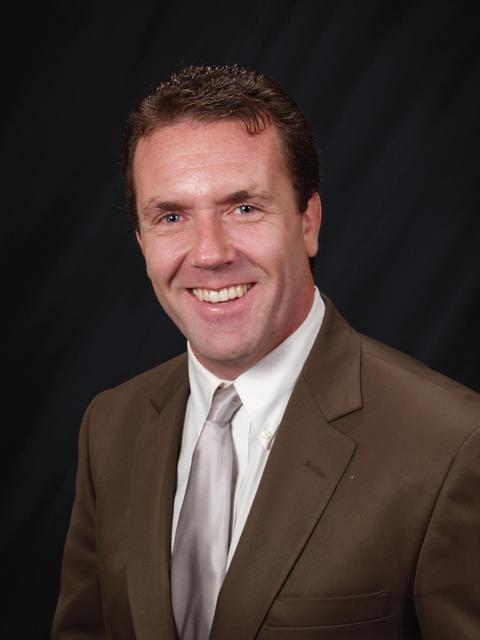
Treating Unwanted Thoughts and Intense Emotions
When helping clients who face difficult internal experiences, clinicians have various evidence-based tools to choose from.
Those working with OCD and related disorders know that exposure and response prevention (ERP) and different forms of cognitive behavioral therapy are considered the gold standard for intrusive thoughts.
Those experienced in treating conditions characterized by difficulty with intense emotions, such as borderline personality disorder, likely have success using dialectical behavior therapy (DBT).
But what about when clients’ struggles relate to both cognitive and affective domains?
For example, a client might cut themselves to deal with explosive emotions as well as in response to intrusive thoughts about self-harm.
Another client’s disordered eating might stem from feelings of shame as well as obsessions about food.
Thoughts and feelings are intertwined and, in complex cases, both can contribute to unhelpful behaviors that cause a client’s suffering.
But many clinicians feel that their protocols leave them stuck in one lane and unable to address both in a way that’s integrative and flexible.
Without the ability to incorporate emotional regulation strategies, clinicians may find that clients get overwhelmed or dissociate during exposure exercises.
On the other hand, using only emotional deescalation strategies can inadvertently invite unhelpful avoidance of things that should be confronted.
In either situation, the client can’t engage in the critical learning process intended by these interventions:
They don’t learn to respond differently to troubling internal experiences.
In this course, you’ll learn a flexible approach for integrating strategies for thoughts and emotions so you can be more effective at addressing complex issues.
You’ll explore how to incorporate emotional regulation strategies like grounding and mindfulness into ERP to help clients stick with their experiences.
And you’ll learn how to fold CBT tools into a DBT-based approach to help clients confront what needs to be confronted.
As you develop your ability to flexibly shift toward the client’s needs in a specific moment, you’ll not only be more confident treating complex issues…
You’ll make your approach even more human and responsive to the person in front of you.
About Treating Unwanted Thoughts and Intense Emotions
Join our new live online course to learn how to implement CBT and ERP for unwanted thoughts and DBT for intense emotions in a way that’s integrated, effective, and client-centered.
The trainers, Blaise Aguirre, MD, and Jon Hershfield, MFT, are renowned clinicians and authors specializing in the areas of DBT and CBT treatment for OCD, borderline personality disorder, and related conditions.
In this 4-session course, they bring their expertise, humor, and profound compassion to the question of complex case treatment.
They’ll highlight the core tenets of DBT and exposure-based behavioral approaches as well as how to pull DBT skills into exposure interventions and how clinicians can distinguish between effective coping tools and avoidance strategies.
With the ability to look through multiple “lenses” to address thoughts and emotions, you’ll be better able to:
- Work skillfully with complex clients, knowing that whatever pain arises in therapy is there for a purpose
- Shift flexibly and responsively between addressing unwanted thoughts and intense emotions
- Keep clients grounded, focused, and present during exposures so they can stick with tough experiences and engage in meaningful learning
- Support adaptive emotional regulation strategies without inadvertently inviting unhelpful avoidance
- Build stronger therapeutic relationships as you adapt your approach to the client’s specific needs
At the end of the training, you’ll be able to help clients develop more helpful coping strategies and reach the other side of pain so they can live more freely and fully.
This training offers 8 CE hours if attended live. We can only provide CE to those who are present via Zoom for the live sessions. However, the sessions will be recorded and available to watch later. Registrants may access these recordings at any time for up to nine months after the live training ends.
Before registering, please review conflict of interest disclosures and complete CE information here.
Session 1 | May 13, 2024, 4:00 p.m.–6:00 p.m. EDT
- Understanding Unwanted Thoughts
- Understanding Difficult Emotions
Session 2 | May 20, 2024, 4:00 p.m.–6:00 p.m. EDT
- The Fundamentals of CBT and ERP for Unwanted Thoughts
Session 3 | June 3, 2024, 4:00 p.m.–6:00 p.m. EDT
- The Fundamentals of DBT for Intense Emotions
Session 4 | June 10, 2024, 4:00 p.m.–6:00 p.m. EDT
- Effective Skills for Complex Experiences – Combining ERP and DBT
- Case Conceptualizations
Participants will be able to:
- Identify diagnoses characterized by unwanted thoughts and compulsive responses (obsessive compulsive and related disorders – OCRD’s)
- Discuss how to conceptualize traits of borderline personality disorder and their relationship to OCRD’s
- Describe exposure-based behavioral approaches to addressing unwanted thoughts
- Describe the core tenets of DBT and their application to difficult emotions
- Identify when to pull DBT skills into exposures
- Distinguish between effective coping tools and compulsive avoidance strategies
Please review complete CE and conflict-of-interest disclosure information prior to registering. This live online course is sponsored by Praxis Continuing Education and Training and is approved for 8 CE Hours by the following listed below. There was no commercial support for this activity. None of the planners or presenters for this educational activity have relevant financial relationship(s) to disclose with ineligible companies whose primary business is producing, marketing, selling, re-selling, or distributing healthcare products used by or on patients.
Praxis CET maintains responsibility for the program with the CE approvals outlined below:
 Joint Accreditation: In support of improving patient care, Praxis Continuing Education and Training, Inc is jointly accredited by the Accreditation Council for Continuing Medical Education (ACCME), the Accreditation Council for Pharmacy Education (ACPE), and the American Nurses Credentialing Center (ANCC), to provide continuing education for the healthcare team.
Joint Accreditation: In support of improving patient care, Praxis Continuing Education and Training, Inc is jointly accredited by the Accreditation Council for Continuing Medical Education (ACCME), the Accreditation Council for Pharmacy Education (ACPE), and the American Nurses Credentialing Center (ANCC), to provide continuing education for the healthcare team.
 IPCE: This activity was planned by and for the healthcare team, and learners will receive 8 Interprofessional Continuing Education (IPCE) credit for learning and change.
IPCE: This activity was planned by and for the healthcare team, and learners will receive 8 Interprofessional Continuing Education (IPCE) credit for learning and change.
Nursing: Praxis Continuing Education and Training, Inc designates this activity for a maximum of 8 ANCC contact hours.
Physicians: Praxis Continuing Education and Training, Inc designates this live activity for a maximum of 8 AMA PRA Category 1 Credits™. Physicians should claim only the credit commensurate with the extent of their participation in the activity.
 Psychologists: Continuing Education (CE) credits for psychologists are provided through the co-sponsorship of the American Psychological Association (APA) Office of Continuing Education in Psychology (CEP). The APA CEP Office maintains responsibly for the content of the programs.
Psychologists: Continuing Education (CE) credits for psychologists are provided through the co-sponsorship of the American Psychological Association (APA) Office of Continuing Education in Psychology (CEP). The APA CEP Office maintains responsibly for the content of the programs.
Social Workers: As a Jointly Accredited Organization, Praxis Continuing Education and Training, Inc. is approved to offer social work continuing education by the Association of Social Work Boards (ASWB) Approved Continuing Education (ACE) program. Organizations, not individual courses, are approved under this program. Regulatory boards are the final authority on courses accepted for continuing education credit. Social workers completing this course receive 8 clinical continuing education credits.
Drug and Alcohol Counselors: This course has been approved by Praxis Continuing Education and Training, Inc, as a NAADAC Approved Education Provider, for 8 CE hours. NAADAC Provider #165310, Praxis Continuing Education and Training, Inc, is responsible for all aspects of its programming.
 National Counselors: Praxis Continuing Education and Training, Inc. has been approved by NBCC as an Approved Continuing Education Provider, ACEP No. 6759. Programs that do not qualify for NBCC credit are clearly identified. Praxis Continuing Education and Training, Inc. is solely responsible for all aspects of the programs.
National Counselors: Praxis Continuing Education and Training, Inc. has been approved by NBCC as an Approved Continuing Education Provider, ACEP No. 6759. Programs that do not qualify for NBCC credit are clearly identified. Praxis Continuing Education and Training, Inc. is solely responsible for all aspects of the programs.
NY Social Workers: Praxis Continuing Education and Training, Inc is recognized by the New York State Education Department’s State Board for Social Work as an approved provider of continuing education for licensed social workers #SW-0467
NY Counselors: Praxis Continuing Education and Training, Inc. is recognized by the New York State Education Department’s State Board for Mental Health Practitioners as an approved provider of continuing education for licensed mental health counselors. #MHC-0198.
NY Psychologists: Praxis Continuing Education and Training, Inc. is recognized by the New York State Education Department’s State Board for Psychology as an approved provider of continuing education for licensed psychologists #PSY-0002.
NOTE: Many state boards accept offerings accredited by national or other state organizations. If your state is not listed, please check with your professional licensing board to determine whether the accreditations listed are accepted.
None
Welch, S., Osborne, T. L., & Pryzgoda, J. (2010). Augmenting exposure-based treatment for anxiety disorders with principles and skills from dialectical behavior therapy. Treatment resistant anxiety disorders: Resolving impasses to symptom remission, 161-197.
Benster, L. L., Weissman, C. R., & Daskalakis, Z. J. (2022). Suicidal ideation and obsessive-compulsive disorder: links and knowledge. Psychology research and behavior management, 3793-3807.
Belli, G., Law, C., Obisie-Orlu, I. C., Eisen, J. L., Rasmussen, S., & Boisseau, C. (2023). Course and Clinical Correlates of Obsessive-Compulsive Disorder with or without comorbid Personality Disorder.
We understand, sometimes things come up!
Praxis will offer a full refund to registrants of both live and live-online trainings who cancel their registration up to 14 days before the course or workshop start date, minus an administrative processing fee of $30 for a 2-day workshop or online course, and a $50 fee for a 4-day workshop. If cancelled within 14 days, no refund will be issued, however, a credit for the same amount will be applied toward another learning product, which expires within 1 year. Please email us at online@praxiscet.com to cancel a registration.



